
A CROWD IS GATHERING along a wide dirt road in the wilderness. Cars, trucks and mud-splashed four-wheel-drives park in a long line, one behind another. Families with young children emerge, kitted out in bright jumpers and gumboots, then backpackers and grey-haired couples wearing matching hiking boots appear. The lively throng – reaching a headcount of 170 – has signed up to take part in the Walpole Wilderness BioBlitz, a two-day event held annually in the South West region of Western Australia. People have driven to the tiny south coast hamlet of Walpole from near and far – a few have even flown interstate to learn about the Walpole Wilderness.
“We’re going to split up into groups of about 10 and survey a whole range of different ecosystems, from the forests down to granite outcrops and peatlands,” says BioBlitz coordinator Dr David Edmonds, a local vet and cattle farmer, as he addresses the crowd. “We’re looking for a whole range of different things – we’ve got expert botanists to talk plants, we’ve got invertebrate specialists for the insects, and frog experts. We’ve got all sorts of people here.”
Later, David tells me he loves watching the animated conversations between experts and citizen scientists: “These are people who just want to participate and get out there and learn more about the Walpole Wilderness.”
By the end of the BioBlitz, these citizen scientists will have uploaded 3000 images onto iNaturalist, an app that helps image takers and researchers identify a flower, bird, frog, or bit of moss.
In total, the BioBlitz images will capture more than 600 species, many of which reside nowhere else on the planet. There will be thrilling sightings of rare species, and a few images that capture devastating loss.
この記事は Australian Geographic Magazine の January-February 2024 版に掲載されています。
7 日間の Magzter GOLD 無料トライアルを開始して、何千もの厳選されたプレミアム ストーリー、9,000 以上の雑誌や新聞にアクセスしてください。
すでに購読者です ? サインイン
この記事は Australian Geographic Magazine の January-February 2024 版に掲載されています。
7 日間の Magzter GOLD 無料トライアルを開始して、何千もの厳選されたプレミアム ストーリー、9,000 以上の雑誌や新聞にアクセスしてください。
すでに購読者です? サインイン
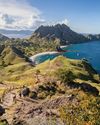
SULAWESI SENSATIONS
There are worlds within worlds and marvels untold waiting to be experienced on Indonesia's remote islands.
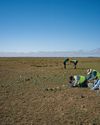
SEARCHING FOR AUSSIE DINOSAURS
Our understanding of where to find ancient life in Australia has been turned on its head by a new appreciation of the country's geology. Now the world is looking to our vast outback as the latest hotspot to locate fossils.
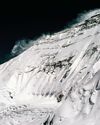
THE HARDEST NIGHT
The first Australian ascent of Mt Everest in 1984 is one of the great feats of mountaineering. Climbed by a small team semi-alpine style, with no bottled oxygen, via the Great (Norton) Couloir, it remains unrepeated 40 years later.
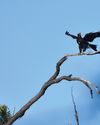
WEDGE-TAILED WONDER
The chance discovery of an eagle nest leads to an extended vigil observing normally hidden behaviours of one of nature's supreme winged marvels.
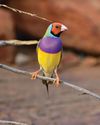
BURDENED BY BEAUTY
Northern Australia's Gouldian finch survives in huge numbers in cages around the world, but its wild population continues to struggle.
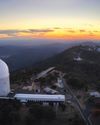
A TELESCOPE FOR A GOLDEN AGE
After a stellar 50 years as one of the country's major scientific assets, the AAT continues to play a major role in keeping Australian astronomy on the world stage.
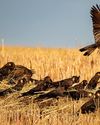
COCKY WHISPERING AT COOMALLO CREEK
This patch of remnant bush on the edge of the West Australian wheatbelt is a place loved by one of Australia's rarest bird species and the man who has studied the site for more than 50 years.

A PIONEERING PAIR
Louisa Atkinson and her mother, Charlotte, were among Australia's earliest authors, and pioneers in women's rights.
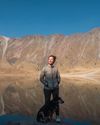
THE LONGEST WALK
Lucy Barnard is walking from Argentina to Alaska -the length of the Americas - on an extraordinary journey of endurance and adventure.
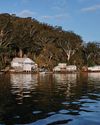
SECLUDED, BUT NOT ALONE
In an era of heightened social isolation, where many of us lead lonely lives, Dangar Island offers the chance to be part of a supportive, connected community.